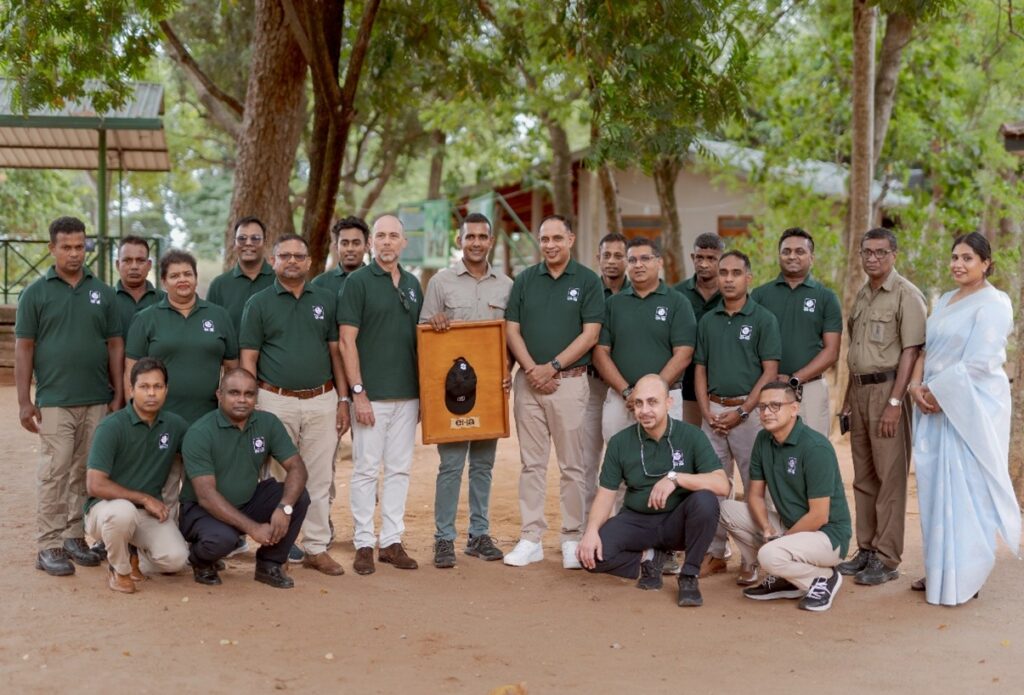
Shangri-La Colombo and Shangri-La Hambantota have reaffirmed their long-standing commitment to sustainability, biodiversity, and meaningful local partnerships through the adoption of a baby elephant—affectionately named El-la (‘El’ for elephant + ‘La’ for Shangri-La)—in collaboration with the Elephant Transit Home (ETH) in Udawalawe, Sri Lanka.
Sri Lanka is home to approximately 4,000 wild elephants, a number that has declined dramatically from over 12,000 in the early 20th century. Today, the survival of these iconic animals is under increasing threat. In 2024 more than 388 elephants lost their lives, and in the first seven months of 2025 alone, over 44 elephants were killed by gunfire—largely due to escalating human-elephant conflict, driven by shrinking habitats and the encroachment on traditional elephant corridors.
Behind these statistics are stories—of orphaned calves left alone after their mothers were killed, of fractured herds, and of young elephants with no clear path forward. Ella’s story is one of them.
Born in the forests of Sri Lanka’s North Central Province, Ella was separated from her herd and fell into an agricultural well. Alone and vulnerable, she was rescued by wildlife officers and brought to the Elephant Transit Home—a place of healing, preparation, and hope.
Since 1995, the ETH, under the Department of Wildlife Conservation, has been at the forefront of elephant rescue and rehabilitation. Located on the border of Udawalawe National Park, the centre has rescued over 300 orphaned elephants, with more than 198 successfully released back into the wild. Unlike traditional sanctuaries, the ETH ensures minimal human interaction, preparing the young elephants for a fully independent life in their natural habitat.
Shangri-La Colombo and Shangri-La Hambantota are committing over USD 10,000 to care for, rehabilitate, and prepare El-la release over the next four years—protecting one life, and with it, a piece of Sri Lanka’s wild future.
Through a five-year adoption agreement, Shangri-La will fund and support Ella’s care, nutrition, medical treatment, and rewilding process—becoming a part of her journey from vulnerable orphan to strong, free-roaming elephant.
This initiative reflects Shangri-La’s promise to be more than a place to stay—it is a tangible act of guardianship, where our spirit of sanctuary extends to protecting the living heritage around us. Rooted in the brand’s ethos, it embraces sustainability, biodiversity, heartfelt hospitality, and a deep respect for culture, heritage, and community.
Under Shangri-La’s global Sanctuary programme, Ella’s story embodies the pillars that guide our purpose—protecting what is precious, living in harmony with nature, creating purpose-led guest journeys, and building emotional connections that go far beyond the stay.
“Ella is more than a conservation project; she represents our deep and ongoing responsibility to the land, people, and heritage of this island we are proud to call home,” said Refhan Razeen, General Manager of Shangri-La Hambantota. “Our resort is surrounded by Sri Lanka’s natural splendour—and this initiative is a reflection of our duty to protect it.”
Hervé Duboscq, General Manager of Shangri-La Colombo, added: “At Shangri-La, we believe that true hospitality extends beyond service—it embraces stewardship. Supporting Ella’s journey is an embodiment of that belief, and a reminder that care for the wild is care for our future.”
Guests at both Shangri-La properties will be invited to follow Ella’s progress through thoughtfully curated experiences, conservation storytelling, and a bespoke collection of eco-conscious merchandise.
In a world where nature’s balance is increasingly fragile, Shangri-La continues to stand gently, but firmly, in its role as guardian of what is precious.
Ends


